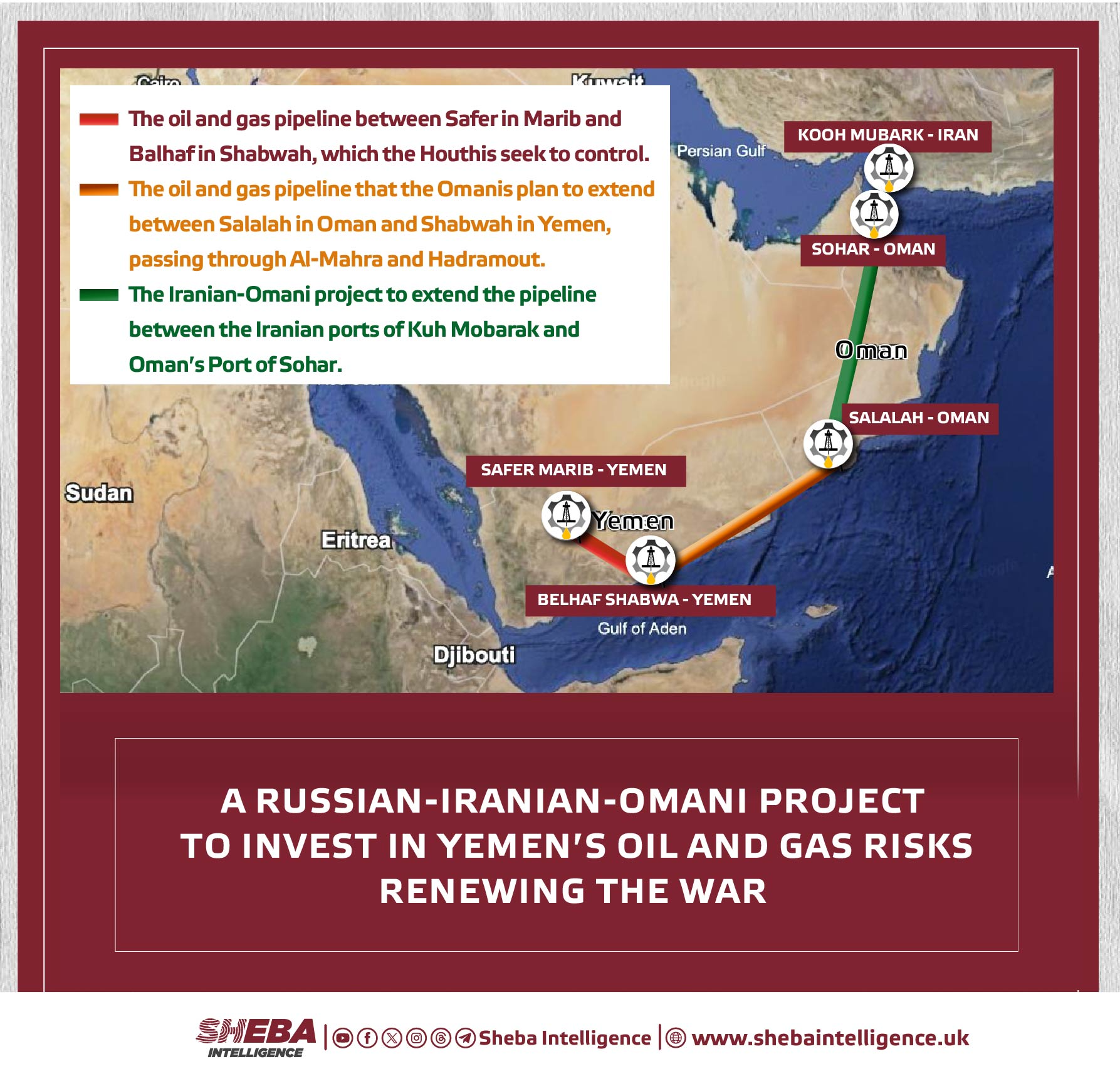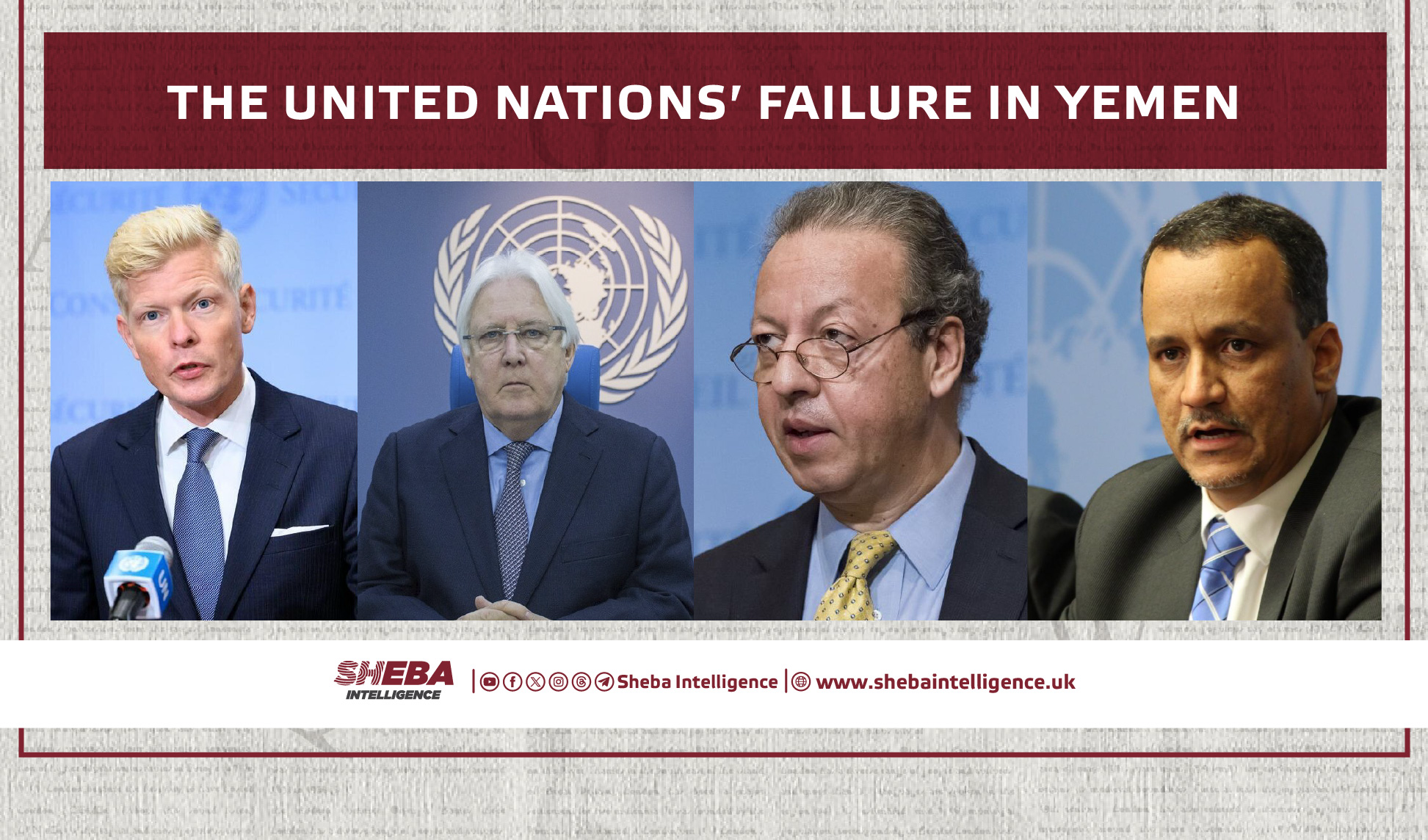A Russian-Iranian-Omani Project to Invest in Yemen's Oil and Gas Risks Renewing the War

Russia, Irani, and Oman seek to invest in Yemen's oil and gas, and this might encourage the Ansar Allah (Houthi) group to accelerate a military operation to control Safer in Marib, Balhaf in Shabwa, and all oil and gas fields and pipelines between them, sources told Sheba Intelligence today.
The sources pointed out an unannounced Russian-Iranian agreement to invest in Yemen's oil and gas with the help of the Sanaa-based government and through pipelines that will later be extended from Yemen to Oman and will be linked to the Omani-Iranian project.
The sources said that Moscow and Tehran reached an agreement regarding Yemen's gas and oil after the Houthis were slow to respond to the Russians' proposal to invest in oil and gas in exchange for contributing to development and providing basic services such as electricity, water, roads, health, and education in Houthi-ruled areas ruled.
According to the sources, the first meeting in which the Russians discussed the issue of investment in Yemeni gas and oil was with Hussein Al-Sa'adai, the brother of Hassan Al-Sa'adi, who is close to the leader of the Houthis and one of the senior leaders controlling the economic file.
The sources added, "In the meeting that took place in a third country in 2022, Russian intelligence officers presented an oil and gas investment proposal in exchange for development. The Houthi group assigned the security and intelligence leader, Abd al-Rab Saleh Harfan, to reach an agreement with the Russians. However, the Russians apologized and withdrew from negotiations with the Houthis on this file. The Russians said the Houthi delayed reply made them agree with the Iranians on a broad deal that included Yemen and Oman."
In May 2021, the Omani Minister of Oil and Gas, Mohammed Al Rumhi, said that his country wants to revive its plans to import Iranian gas by extending gas pipelines from Iran to it and expanding this pipeline network to Yemen.
Yemen's exports of gas and oil stopped in October 2022 after the Houthis targeted oil export terminals in Hadramout and Shabwa provinces, which are under the control of Yemen's UN-recognized government.
In 2013, Iran and the Sultanate of Oman agreed on a plan to export gas through a submarine pipeline. The proposed pipeline at the time would have had the capacity to transport 1 billion cubic feet per day of Iranian natural gas to Oman.
After signing the Iranian nuclear agreement in 2015, officials from the National Iranian Gas Company and the Omani Ministry of Oil and international companies, including Shell, Total, and Korea Gas Corporation, held extensive meetings to explore the possibility of transporting gas from Iran to Oman.
However, after the US withdrawal from the nuclear agreement in 2018, discussions on the possibility of transporting gas from Iran to Oman stopped. Neither Iran nor Oman possess the technology needed to build submarine pipelines. Such a project requires Western technology, which in turn needs the lifting of US sanctions on Iran.
In May 2022, a few months after President Joe Biden assumed power, negotiations on returning to the nuclear agreement resumed. Meanwhile, Iran and Oman agreed, during the visit of Iranian Petroleum Minister Javad Owji to Oman, to revive the submarine gas pipeline project. Two weeks later, Muscat announced the signing of two memorandums of understanding with Iran to develop two gas pipelines and an oil field along their maritime border.
In 2023, Iran already began the process of extending gas pipelines between the Minab and Koh Mubarak regions in southern Iran to export gas to the Sultanate of Oman, the Managing Director of Iran Gas Engineering and Development Company (IGEDC) Reza Noshadi, said at the time. The proposed pipeline will extend from Iran's South Pars gas field to Sohar in northern Oman.



